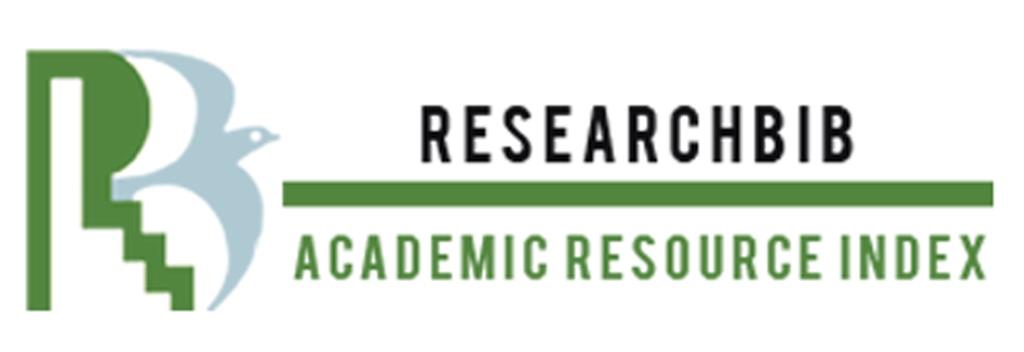ANALYSIS OF ENHANCING ENERGY EFFICIENCY IN THE OPERATION OF ROLLING MILLS AT METALLURGICAL ENTERPRISES
Abstract
This article analyzes the methods and technologies for improving energy efficiency in the operation of rolling mills in metallurgical enterprises. It explores various approaches to energy consumption reduction, such as upgrading equipment, optimizing production processes, and integrating renewable energy sources. Additionally, it addresses the importance of energy management systems, workforce training, and governmental policies in enhancing energy efficiency. The study highlights the role of technological innovations, including advanced control systems, energy storage solutions, and recycling practices in achieving sustainable energy use in the industry. The findings demonstrate that a combination of modern technology, strategic management, and environmental policies can significantly reduce energy consumption in rolling mills, contributing to both economic and environmental benefits.
Downloads
References
International Energy Agency (IEA). (2020). Energy Efficiency in Industry: Best Practices and Case Studies. Retrieved from https://www.iea.org/reports/energy-efficiency.
Lanza, G. (2019). Technological Advances in Metallurgical Industry and Energy Efficiency Improvements. Journal of Metallurgical Engineering, 42(3), 121-134.
European Commission. (2018). Best Available Techniques (BAT) Reference Document for the Production of Iron and Steel. Retrieved from https://eippcb.jrc.ec.europa.eu/reference.
American Iron and Steel Institute (AISI). (2021). Energy Efficiency in Steelmaking: Opportunities and Innovations. Retrieved from https://www.steel.org.
Energy Efficiency and Renewable Energy (EERE). (2017). Industrial Energy Efficiency: A Guide for Rolling Mill Operators. U.S. Department of Energy. Retrieved from https://www.energy.gov/eere.
Zhao, J., & Xu, B. (2022). Optimization of Energy Use in Metallurgical Processes: A Study of Rolling Mill Operations. Journal of Energy Optimization, 15(2), 75-89.
Berzosa, A., & Rodríguez, L. (2020). Sustainability in Metallurgical Industries: Energy Management and Efficiency Measures. Steel World, 60(8), 30-35.
Hasan, M. F., & Hossain, M. Z. (2021). Energy Efficiency Practices in Rolling Mills: Technological and Operational Innovations. Energy Management Journal, 56(4), 112-123.
Yang, H., & Li, W. (2019). Energy Efficiency Improvement in the Steel Industry through Advanced Control and Optimization Techniques. Journal of Manufacturing Science and Engineering, 141(12), 121012.
International Organization for Standardization (ISO). (2020). ISO 50001: Energy Management Systems — Requirements with Guidance for Use. Geneva: ISO.
Zhang, Z., & Liu, J. (2020). Energy Recovery and Optimization in Rolling Mill Processes. Energy Reports, 6, 117-126.
Singh, R., & Kumar, A. (2018). Energy Savings in Steel Manufacturing: A Comprehensive Study of Energy Efficient Technologies in Rolling Mills. International Journal of Steel Engineering, 25(1), 44-56.
Sahoo, S., & Bhattacharya, S. (2020). Energy Efficiency and Carbon Emission Reduction in Steel Mills: The Role of Technological Innovations. Journal of Cleaner Production, 254, 120101.
World Steel Association. (2021). World Steel in Figures 2021. Retrieved from https://www.worldsteel.org.
European Bank for Reconstruction and Development (EBRD). (2022). Energy Efficiency Financing in the Steel Sector: A Case Study Approach. Retrieved from https://www.ebrd.com.
Zhang, L., & Wei, X. (2019). Advanced Heat Recovery Technologies in the Steel Industry: Impact on Energy Efficiency. Metallurgical Technology Journal, 51(3), 66-79.
Liu, X., & Wang, Y. (2021). Energy Management in the Steel Industry: An Overview of Innovations and Best Practices. Energy Policy Journal, 72, 132-145.
Lee, J., & Choi, H. (2020). Technological Integration for Energy Efficiency in Metallurgical Plants. Journal of Industrial Engineering, 46(8), 54-68.
















